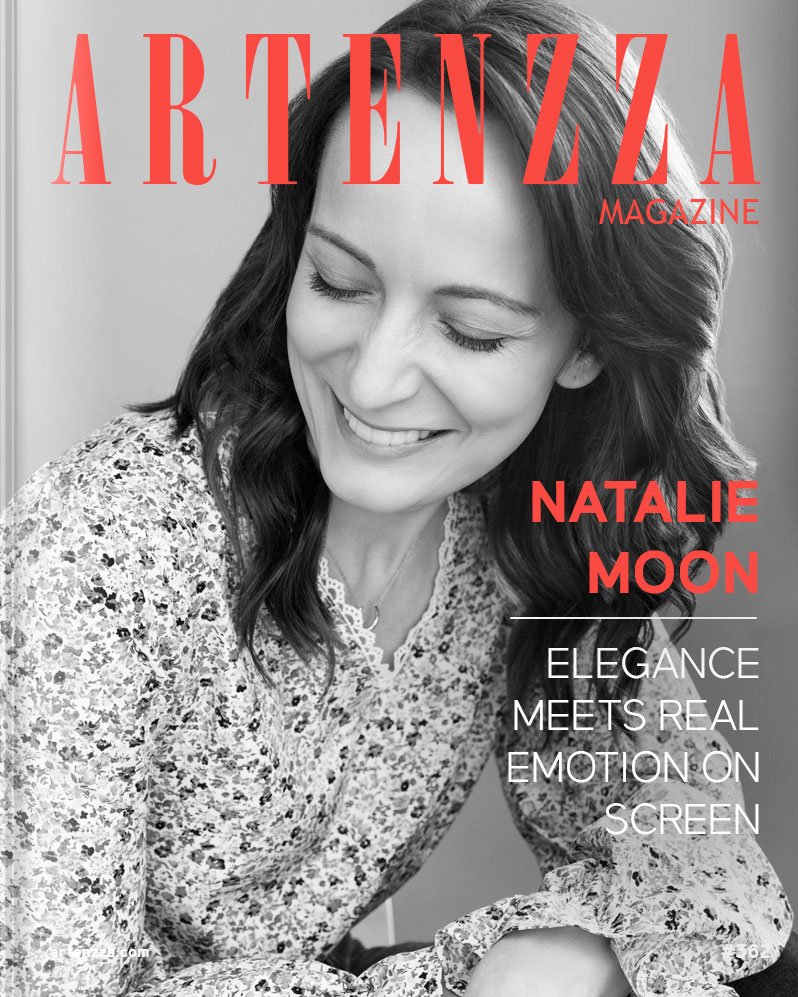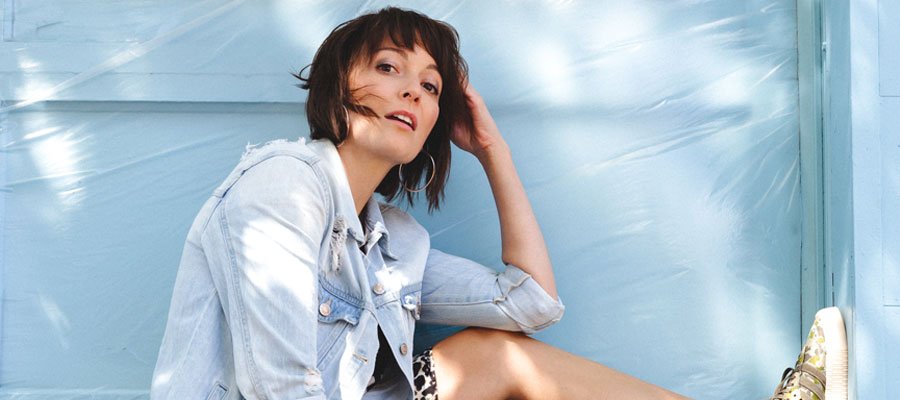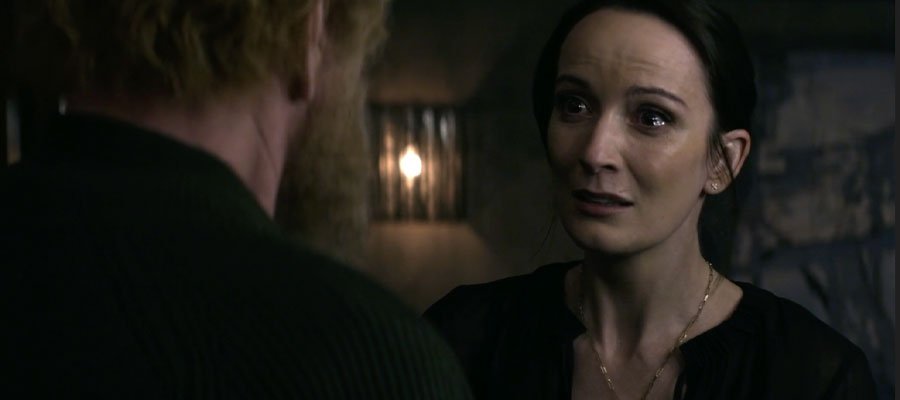Trusted by 500+ artists
Increase your visibility
Trusted by 500+ artists
Increase your visibility

Actor

Cover photo: Alison Wandzura (Soulfire Studios) Banners photo: Nicole Jorgensen
Your recent role as Erica Del Portenza in Superman and Lois is quite iconic. How did you prepare for this character, especially given her connection to Lex Luthor?
I always find that using your own life experience to connect with a character is the most helpful to me. I have been through a divorce in my own life and even though I still loved the person I very much knew that for my own health and safety I had to remove myself from the situation. I know that Erica is feeling the same way about Lex and although she still loves him and desperately wants him to love her back she has to choose herself and leave. Also, she is not only protecting herself but also protecting Elizabeth, which is the absolute most important thing to her. Being able to connect to those stakes from a personal level and for your body and sensory system to already recognise the gravity of the situation you are going through helps me alot to live in the character.
Can you share any memorable moments from working with Michael Cudlitz and Elizabeth Henstridge on set?
Elizabeth and I connected immediately about both being from England and even the same area! She was such a giving director, always asking if I was happy with the performance or wanted to do another take. Incredibly organised and you could really feel the love she had for the show and the characters. Also, as a Brit there were a couple of lines that felt very American for Erica to say. One of which was something like, “There’s no way in hell” when Lex was saying that Elizabeth was staying with him. I asked Elizabeth if she would mind if I changed the line to “Over my dead body” which A, I felt was more something a Brit would say and B, in the comic books Lex does try to kill Erica, she was very open to the idea and loved the idea of the easter egg because the fans of the comics love finding those kind of things within the show.
Working with Micahel I can only describe as easeful. He was a very giving scene partner always checking in to ask if there was anything more I needed from him. He was a very calm presence whether on or off set and it was a lovely energy to be around especially when you are among the hustle and bustle of set dec, make up, lighting etc etc. I think he makes such an excellent Lex and his brooding intensity and explosivity is so perfect for the character.
You have a diverse background in both film and television. What do you find most challenging about switching between different genres and formats?
Honestly I don’t find it much of a challenge to jump between film and television, I would say film is slightly more relaxed as there isn’t so much of a time constraint to fit as much as you can in a day to make sure you get everything you need for the episode. So sometimes in that way you are given a little more room for experimentation and a few more takes perhaps than TV. However, the difference between film & TV and theatre is more of a challenge. I love theatre as well and I want to be ready to jump into a play at any given opportunity so I know I have to keep my vocal instrument sharp which I do by attending classes at Haven Studio and constantly working out and warming up my voice. They are very different beasts and keeping myself ready in all assets of performance I think is really important.
As an accent coach, how do you approach teaching accents to actors? What’s the most rewarding part of that process?
Different actors require different approaches, as of course we are all different beings with different kinds of learning techniques to suit us. However, the first step generally is to start identifying and breaking down the different sounds and accent features of the accent someone is trying to learn and then comparing the sounds to the actors natural accent and how they need to change not only the sounds
but also the mechanics of the mouth and the placement of the accents these will all vary. The speed an actor can pick up an accent also varies a lot, some people have a better ear for it, some have only lived in one place their whole lives which can mean they have never had to naturally pick up another accent and this can make things more challenging. Together we craft a teaching method to suit the actor with recordings, phonetics, videos, drawings, whatever helps the individual.
Sometimes due to production scheduling you really aren’t given much time with performers to rehearse before, in fact, on some projects there is no rehearsal for accent at all and you are teaching and making adjustments on the fly on set after each take. So in these instances you have to really pick and choose certain sounds that make or break the accent. I think the most rewarding part has to be seeing the final product and knowing that you had a small part in creating the now fully formed character you see on the screen.
You’ve played a variety of roles, from quirky characters in The Flash to emotionally demanding roles in Allegiance. How do you adapt your acting technique for such different characters?
The Flash was an interesting one because I had actually booked the role in an American accent but when I met the director Ed Fraiman (who was also British) the day before shooting at my wardrobe fitting, he loved the idea of Jane being a British scientist who went to Oxford or Cambridge and then moved to the US. I was of course delighted to play in my natural accent and when I got home started working on her with this new addition. However, when crafting “American” Jane, as she is rather socially awkward and was described as “taking a textbook to bed” I played her very literal and she didn’t understand sarcasm or jokes really. The problem being when I switched her to British when playing her the same way she just became very unlikable and cold and everything I said sounded rather like sarcasm, as British humour is very dry of course. So my work began to warm her up so she didn’t come across as bitchy but still unsentimental and factual. Jane was a very heady character and the complete opposite of what I had to portray in Allegiance. In emotionally demanding roles, especially victims, I once again turn to my life experience. I’ve been through some pretty harrowing experiences in my life and I am lucky to be able to channel those into my work. When you have been through an extremely tense, violent and terrifying situation, your body remembers. For Allegiance my mind was the characters and I was experiencing all of what she was experiencing and even though my sensory system hasn’t necessarily been through exactly that (although it was pretty close) I know how that feels, I know where I feel it in my body, what happens to my breath. The body never forgets so I don’t need to “take myself back” into my trauma but I am using those experiences to remind my body of the stakes.
What inspired you to transition from the UK to the North American film and television market? Has the experience differed from what you anticipated?
Truth be told I came to Canada originally for a relationship and I actually lived in the freezing North for the first two years. It was a very bad experience and I’m quite sure acting saved me and gave me the strength to leave as I knew it was what I was meant to do with my life. So I moved to Vancouver and made my life here. I did find the Vancouver film and TV industry to be rather closed off and rather hard to crack.. In the UK it is acceptable to self represent yourself for a while and submit yourself to casting directors for projects you think you may suit or to just introduce yourself as a new face. After trying a couple of times here I realised that was very much not the way to go here and began my journey of finding representation in the city.
Your early passion for acting started at a young age. Can you tell us about that pivotal moment when you realized you wanted to pursue this career?
Ever since I was very tiny I loved to perform and sing and make “radio shows” where I would interview people (myself playing various people with different voices and accents” and record them onto my tape
player! I’m aging myself now. When I was eight years old I was given the lead part in my school musical and I was enthralled, I remember the lights, the costume, the buzz of anticipation, the excitement, I even remember one of the songs. I think it was probably this moment that solidified it for me. I was also very very lucky to have incredibly supportive parents who constantly pushed and encouraged me to follow my passion.
In addition to acting, you’ve taken on roles behind the camera as a writer and director for short films. How does that influence your work as an actor?
Honestly, after taking on board all the work of producing, writing and directing my short film it has just made me have so much respect for the production team and especially the crew. I am always courteous and polite and friendly as I know how hard it is to do what they are doing and I was only doing a short film. The last thing they need is a self righteous diva making their lives more difficult. Respect and grace is so very important in our industry.
With your strong support for indie films, what do you think is the most important aspect of the indie film scene today?
There seems to me that there is often a formula to blockbusters these days and that formula is of course to make money so there is not a lot of variety. The indie film scene is where the passion and love of the craft comes in, stories and weird and wonderful and outside of the money making box and that to me is so important. To tell individuals stories and bring an audience into your creation without the first thought being how much it will make at the box office. Then of course there are indie films that are a huge hit in the box office and that’s just magic.
Looking ahead, are there any dream roles or projects you hope to explore in the future? What’s next for you?
I’ve always loved the idea of being part of an espionage story, a spy with multiple characters to play, where I can use different accents. When I was younger I always dreamed of being a Bond villain. I would love to dip my toe into some mentally unstable characters, a character like Villanelle from Killing Eve would be a dream.

Do you want to know more? You can find some projects below.
Spotify Playlist